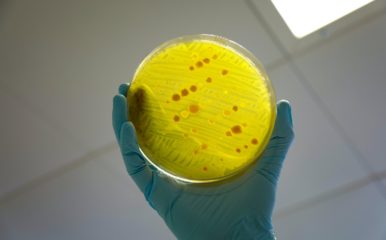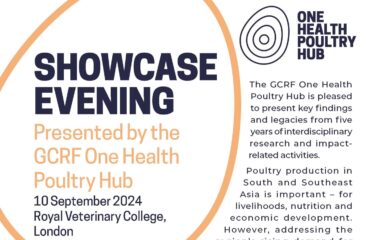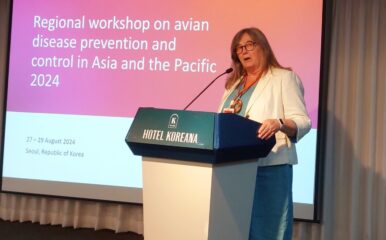
Hub experts join global commission to mobilise action against pandemics
Published on 18/10/2023

Egonetix_xyz/Pixabay
Professor Dirk Pfeiffer, One Health Poultry Hub Deputy Director, and Professor Robyn Alders, senior policy consultant with the Poultry Hub, have been appointed members of a major new scientific commission to explore viral spillover from animals and propose broad action for pandemic prevention.
The Commission, convened by The Lancet and the Coalition for Preventing Pandemics at the Source (PPATS), comprises 28 global experts from a range of disciplines, including epidemiology, virology, ecology, One Health, human medicine, veterinary medicine, food systems management, anthropology, Indigenous knowledge systems, wildlife trade, health systems, policy and more.
It aims to “mobilise decision makers and implementers to take transdisciplinary action to limit viral spillovers through research, policy, law, and practice—thereby reducing the risk of future pandemics while promoting a healthier, more sustainable, and more equitable future”.
Spillover refers to when pathogens such as viruses ‘jump’ the species barrier. Over the next two years, The Lancet Commission aims to move away from the focus on so-called ‘containment’ measures against such pathogens (zoonoses), such as personal protective equipment and vaccines, focusing instead on preventative measure, considering factors such as food security and healthcare. It will:
- Evaluate and synthesise evidence on the drivers of viral spillovers;
- Identify and evaluate strategies and interventions to prevent viral spillovers;
- Provide recommendations for research investigating vital spillovers
- Examine the equity benefits of viral spillover prevention;
- Assess the co-benefits and trade-offs of viral spillover prevention
- Identify social, economic, and political challenges and opportunities for implementing viral spillover prevention; and
- Develop recommendations for viral spillover prevention that can be adopted and adapted by governments and other stakeholders.
Since 2019, the One Health Poultry Hub has been undertaking interdisciplinary research into the risks of avian influenza (bird flu) spillover associated with poultry production in Asia.
Holistic approach
Dirk Pfeiffer, Chow Tak Fung Chair Professor of One Health at City University, Hong Kong, said: “We have so far mostly focussed on the biological mechanisms that drive disease transmission. But to be able to meaningfully predict and ideally sustainably reduce risk of pandemic emergence, we need to adopt a holistic approach that takes into consideration the diversity of direct, indirect and feedback loop relationships within the complex global ecosystems that we are a part of.
“The influence of human behaviour is a key component in these systems, and it is, in my view, the most difficult one to understand due to the diversity of socio-cultural factors. Even more importantly, it is the most difficult one to change.
“The One Health Poultry Hub is tackling this issue through interdisciplinary research based on co-production of knowledge generated by experts from the natural as well as social sciences.”
Policy interventions
Robyn Alders, Senior Consulting Fellow with Chatham House Global Health Programme, said: “In an increasingly small world, where national budgets must tackle multiple challenges, it is crucial that we identify pressure points that can be relieved through policy and technical interventions to yield multiple benefits. Preventive actions taken to reduce the risk of another pandemic have the potential to support sustainable food and nutrition security, mitigate climate change and strengthen national economies.
“Our Commission aims to collaborate with governments and diverse communities to develop feasible recommendations that will help to prevent the next pandemic and also deliver improved health and wellbeing for all.”


